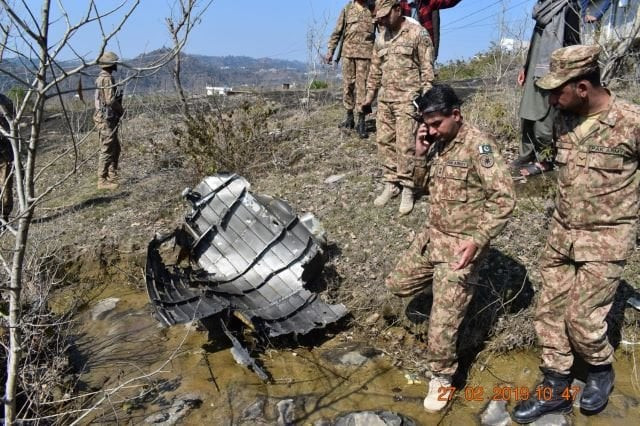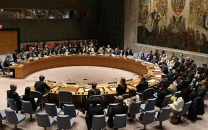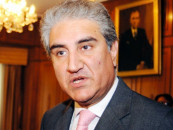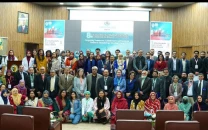Keeping foreign aggression at bay
Having vanquished internal foes, Pakistan faced off its enemy at the gates

 The year 2019 has been a tumultuous one for Pakistan’s external security, even as it closed off a decade that has culminated in a real positive reversal on the internal security front.
The year 2019 has been a tumultuous one for Pakistan’s external security, even as it closed off a decade that has culminated in a real positive reversal on the internal security front.From entering the 2010s as one of the most dangerous places in the world, Pakistan would emerge as one of the select few nations to beat the scourge of terrorism and insurgency. But with internal enemies subdued, a resurgent threat reemerged on the country’s Eastern borders in the shape of an increasingly belligerent right-wing Indian government supported by a jingoistic media.
On the brink
On February 26, New Delhi sent its fighters and bombers deep into Pakistani territory. The Pakistan Airforce quickly scrambled to take on the intruders. The Indian aircraft dropped their payload on an uninhabited hillside of Jabba in Balakot, destroying trees and quickly fleeing to the safety of their airspace.
This incident brought the two nuclear-tipped but hostile neighbours to the brink of war, a situation not seen for over a decade. Along with a drawdown of diplomatic ties, Islamabad also cut off access to its airspace for planes to and from India.
Having promised a swift retaliation, the very next day, Pakistan acted.
The Air Force shot down two Indian aircraft as they ventured into Pakistani airspace. One of these aircraft fell in Azad Jammu and Kashmir (AJK). Its pilot ejected and was apprehended by locals. The other fell in the Indian controlled section of the disputed Himalayan territory.
After two days, the captured Indian pilot, identified as Wing Commander Abhinandan Varthaman was repatriated via the Wagah border in a simple ceremony.
Later, international journalists, envoys and defence attaches of various countries were taken to the site where the Indian aircraft had dropped their bombs.
The incident, however, set the tone for the rest of the year. Sources said that India committed as many as 1,267 ceasefire violations along the Line of Control. These cross-border attacks left at least 47 people dead and 241 injured. Around half of the fatalities, around 26, took place in Indian ceasefire violations after August 5 — when India revoked the special constitutional status for Jammu and Kashmir.
Countering terror threat
Amidst tumultuous events on the eastern border, the country managed to further control the demons of terrorism which have dogged it for well over a decade.
According to annual security reports by multiple think tanks, there was a significant reduction in terror incidents in the country over the past year. As a result, there was a corresponding decrease in the number of casualties from these incidents.
Security officials, who did not wish to be named, said that at least 367 intelligence-based operations were conducted against terror outfits in the country, including against the likes of al Qaeda and other foreign fighters, the Tehreek-e-Taliban Pakistan (TTP) and its splinter groups, the Islamic State (Da’esh) and others.
On the eastern front, Pakistan — which has already been working on fencing its borders with Afghanistan, is now mulling fencing along the border with Iran following a massacre in Ormara where militants, who had allegedly crossed over from neighbouring Iran stopped a bus on the Makran Coastal Highway and killed 14 innocent people.
To make the western border secure, security officials said that around 1,457 kilometres of borders had been fenced during the year, including 673 kilometres in Khyber-Pakhtunkhwa (K-P) and some 784 kilometres in Balochistan.
Further, some 317 border fortifications had been built, including sine 215 in K-P and 102 in Balochistan.
Future challenges
Speaking to The Express Tribune, prominent Pakistan defence experts said the main security challenge for Pakistan going into 2020 would emanate from India. “To derive threat, military strategists divide the environment into three levels: international, regional and domestic,” explained Maj-Gen (retd) Inamul Haque. “Internationally, we are good. We see no hostilities emerging with the US and our ties with all other countries are friendly.”
“Regionally, the two areas of concern for us are Afghanistan and India,” he said. “While any threat from Afghanistan has a direct bearing on our domestic environment – certain groups there can create instability in border areas which could spill over into the heartland – our war against terrorism has closed much space for that. So that threat, while still existent, is a subdued threat.”
“In contrast, the threat we face from India is a live threat,” Gen Inam pointed out. “We have a history of conflict, of course, but Modi’s chauvinistic government has the propensity to gamble. It took a gamble earlier this year that had all the hallmarks of going out of control.”
“When you factor in an increasingly jingoistic media in India and an extension for Bipin Rawat, who for whatever reason has shown he sings to the BJP tune, we will have to be careful,” he added. “We have to play our cards really well, coolly with restraint.”
“Our security situation has improved considerably on the internal front, but it has risen along our borders,” said Lt-Gen (retd) Talat Masood. “Modi wants to keep pressure on Pakistan. He won’t let it up,” he said.
Both Gen Inam and Gen Masood agreed that India’s current domestic crisis increased security risks for Pakistan. “Domestic protests in India have increased threat levels as Modi can go for any misadventure to divert attention, locally and internationally,” said Inam. “Internal interest may occupy more of Modi’s energy and time, but India has a history of putting pressure on Pakistan whenever it runs into problems,” said Masood.
For Masood, Afghanistan and Pakistan’s economy were additional security concerns heading into 2020. “Whether the US decides to leave Afghanistan or just cut its footprint there, it will still want some agreement with the Taliban to prevent the country from destabilising,” he said. “As such, the US will keep up pressure on Pakistan to bring the Taliban to the table.”
“Internally, political hostility and instability, and economic conditions which are not likely to improve will affect our security by preventing the government from carrying out a national agenda,” he added.



















COMMENTS
Comments are moderated and generally will be posted if they are on-topic and not abusive.
For more information, please see our Comments FAQ